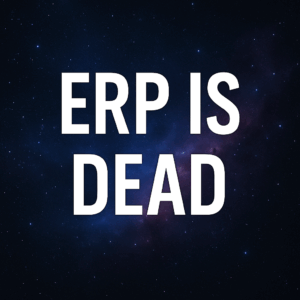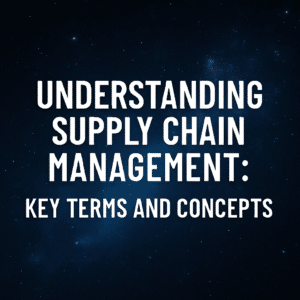About 12 years ago, I received a phone call from an attorney. After a few brief moments of panic trying to think of who I may have made angry enough to sue me, I realized that it was not a legal matter against me, but a career-defining business opportunity.
I had just started my previous a few years earlier and was establishing a name for myself as a leading independent ERP consultant. Our company had been doing quite a bit of ERP software selection, implementation, and change management work. I had recently established a weekly ERP blog and webinar series, which was one of the first in its industry and was how the attorney had found my information.
The attorney represented one of the big ERP vendors, who was being sued for several hundred million dollars over a failed implementation. He was looking for an independent expert witness and wanted to know if I could help, but there was one problem: I didn’t even know what exactly an ERP expert witness was or what it meant.
Table of Contents
ToggleWhat is an ERP expert witness?
After speaking with the attorney for a few minutes, I realized that an expert witness’s role was pretty simple: to use my broad implementation experience to analyze an ERP failure and provide an opinion of why it failed. The idea is that a credible ERP expert witness will provide attorneys, judges, and jury members a clear understanding of why the project failed. From there, the attorneys would fight over where to assign blame in an attempt to win the case.
It’s a lot like analyzing a crime scene. The attorneys provide all the evidence for my team and I to analyze, such as emails, project status updates, executive steering committee meeting notes, and just about everything else related to the implementation. The intent is to reconstruct what happened, why it happened, and why it failed.
The first step is to write a report analyzing the facts of the case. The report provides opinions about the implementation and compares what happened in the project versus implementation best practices. It also sorts through the symptoms and digs into the root causes that really caused the failure. The report is then typically followed by depositions and testimony, where the ERP expert witness will testify to the facts and opinions outlined in the report.
Lessons from an ERP expert witness and lawsuits
In our years of providing expert witness opinions on the biggest all-time ERP failures in the US, Europe, Australia, and other parts of the world, we have found some common themes. For example:
ERP failure typically isn’t due to “broken” software. Lawsuits often allege that software “doesn’t work.” We find that technology typically works – though, to be sure, sometimes it doesn’t – but the more common issue is either a) the software was broken while customizing is, and/or b) the software works from a technical perspective but doesn’t fit the client’s business needs. That leads to some deeper root causes that are more likely to be an issue than the technology itself.

There is no clear correlation between ERP software vendor and ERP failure rates. With highly publicized situations like the SAP failure at Lidl and implementation challenges at other high-profile companies, some might think that SAP failures are more common than others. But we have found that any of the top ERP systems are just as likely to succeed or fail. It typically has less to do with the technology itself and more to do with the way that technology is implemented. The odds of success versus failure are generally the same – regardless of which specific technology you might be deploying.
Companies without a clear vision and business requirements for their ERP implementations are much more likely to fail than others. It’s easy to get excited for a new software transformation and jump right in without a clear vision or plan. It is also tempting to defer to “vanilla ERP software” and “best practices,” but companies that do so are much more likely to struggle with their implementations. The ones that are most successful are those that take control of their project and let their business drive their transformations rather than the other way around.
Organizational change management is the most common root cause of ERP failure. Change management – or lack thereof – is the most common pattern we see with ERP failures. Effective change management strategies go well beyond training and communications and extend into high-value activities like change impact, strategic alignment, and other things that are more likely to contribute to success or failure. ERP failures tend to overinvest in the technological aspects of their transformations while underinvesting in critical human and operational components such as organizational change management.
Conclusion: ERP expert witnesses can help us learn to succeed
These confessions are meant to be less about being an ERP expert witness and more to do with learning from learning from ERP failure. By examining these extreme “train wreck” situations, we can learn what not to do, which is just as important as what you do need to do. I would much rather you never need to hire an ERP expert witness like me in the future when you can proactively ensure success today.
Please contact me if you are looking for an expert witness or ideas on how to position your transformation for success. I am happy to be an informal sounding board as you continue your transformation journey!





